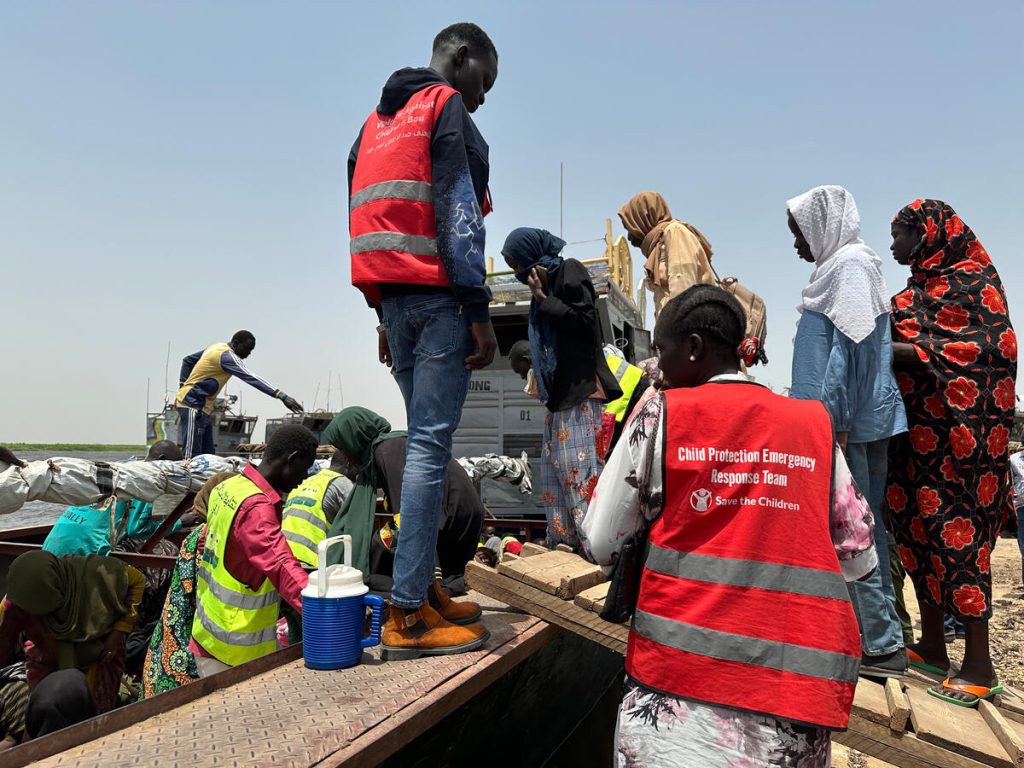18th August 2025
World Humanitarian Day is always a moment to pause and this year’s theme, Strengthening global solidarity and empowering local communities, reminds us to honour those who serve on the front lines of crises and to reflect on what it truly means to stand in solidarity with communities in need.
The humanitarian sector is facing one of the most challenging periods in its history.
Conflicts are protracted, climate impacts are intensifying, and humanitarian needs have reached record highs. Attacks on aid workers have become shockingly routine. Since 2000, more than 8,500 major attacks have been recorded, with at least one humanitarian worker killed, injured, kidnapped, or detained every single day. In 2025 alone, 248 aid workers have already been killed, a 44% increase on this time last year, making it on track to be the deadliest year yet (source: UN OCHA).

Statistics are helpful in showing the immense scale, but they often overshadow a human factor. These are not just numbers. They are the lives of colleagues who chose to protect and care for others no matter the consequences. Most of them were local responders, people serving the communities and navigating risks that outsiders, like myself might never face or fully understand.
I am often overwhelmed by the numerous acts of extraordinary courage and ingenuity I witness when speaking with humanitarians from across the globe, and I am always in awe of their dedication.
In Sudan, mutual aid groups continue to provide food, shelter, and medicine amid relentless conflict. In Gaza, exhausted Save the Children colleagues operate in conditions that defy human endurance, yet they keep going. It makes those of us far from the front lines question our own role in the system and leaves us asking: what more can we do?
World Humanitarian Day is a reminder that, at the very least, we must stand in solidarity; something the world today seems to be in short supply of.
I share sentiments expressed by Gareth Owen, a former Humanitarian Director at Save the Children UK and the founding force behind the Humanitarian Leadership Academy. He recently reflected that humanitarianism, at its core, is about defending human dignity, especially against the deliberate cruelty that our colleagues are increasingly subjected to. The test before us now is whether we will rise to that challenge, alongside the colleagues who have sacrificed so much in the service of others.
At the HLA, we are humble about our small role in the wider humanitarian system, but we believe the way forward lies in turning this year’s theme into action.
We stand in solidarity with our colleagues, and for over a decade we have worked alongside them to support local communities and partners facing crises. Our new strategy builds on this foundation and focuses on three interconnected priorities: supporting locally-led humanitarian leadership, driving collective action, and amplifying local expertise.
Supporting locally led leadership means investing in the people who are already responding – strengthening their resilience and equipping them with the skills, resources, and confidence to lead. It’s why we work with women-led organisations, youth leaders, and diverse local responders across regions.
Driving collective action means bringing together networks, partners, and communities to co-create solutions and to raise our voices together; for the communities we serve and for the colleagues we stand in solidarity with.
This collaborative approach is embodied by leaders like Ismail Saxafi from the Aider Refugee Initiative in Uganda, who was a panellist at our recent Humanitarian Xchange event in Kampala. He said:
“Youth-led initiatives understand what to advocate for on issues that affect them. We know the challenges we face, and we have the capacity to create our own platforms for advocacy. Refugees have platforms like the Humanitarian Leadership Academy and Save the Children to amplify their voices. But to make an impact, we must use these platforms wisely, strategically, and with purpose. Let’s make every voice count!”
No single actor can achieve transformative change alone.
Amplifying local expertise means making sure the voices of those closest to crises are heard – in policy discussions, public and media narratives as well as funding decisions. By telling their stories, sharing their research, and connecting them to global audiences, we are hoping to not only shift perceptions but to also share power.
This approach is not about charity; it is about justice. Those who are first to respond should be first to be supported. Solidarity must be more than a sentiment; it must be a commitment, backed by action and accountability. That includes holding perpetrators of attacks on aid workers to account, ensuring local actors and communities are at the centre of any discussion, and reforming systems that still, too often, default to international control. It means standing up for humanitarian principles even when doing so is politically uncomfortable.
We honour those colleagues who have sacrificed so much, yet remembrance without action is not enough. We must match the courage of those on the front lines with courage in our own decisions; courage to share power, to invest in local leadership, to speak out when humanitarian principles are violated.
Humanitarianism is under strain, but I refuse to believe it is broken.
I have seen too many examples of leadership, creativity, and solidarity to believe otherwise. If we choose to work differently – with humility, trust, and determination – we can rebuild a humanitarian system that is not only more effective, but more just.
At the HLA, we are committed to being part of that change. We invite all who share that commitment to join us, because strengthening global solidarity and empowering local communities is not only the theme for this year. It must be the work of our lifetime.
About Pawel Mania
Pawel Mania is the Director of the Humanitarian Leadership Academy. He has been with Save the Children for seven years, most recently leading the HLA’s Impact and Influence work and overseeing crisis responses in Eastern Europe and Türkiye/Syria. With over 15 years of experience in international development and emergency contexts across Europe, the USA, the Middle East, East Africa, and Asia, Pawel has worked on programmes ranging from humanitarian response and stabilisation to leadership development and advocacy. Earlier in his career, he held roles with the British Council and the European Parliament. He is passionate about advancing locally led leadership, strengthening inclusion, and driving transformative approaches to crisis response.
